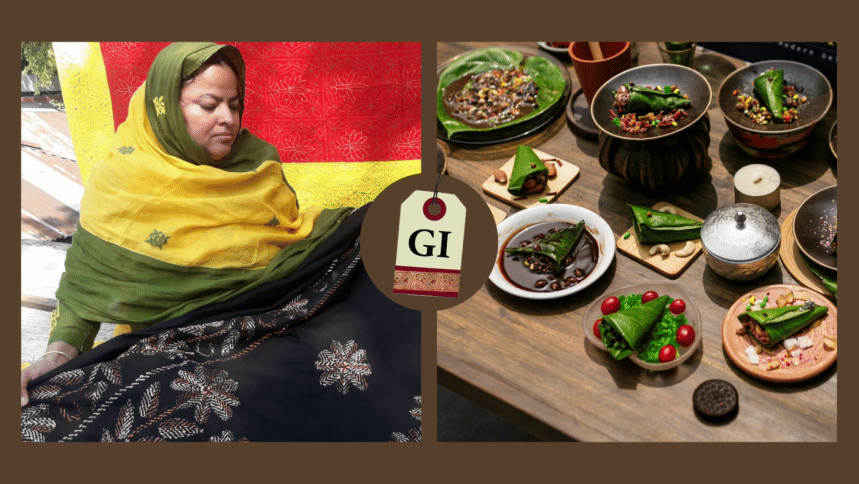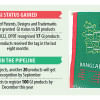GI certified and proud: From sweet betel leaves to handcrafted nakshi kanthas

Three more Bangladeshi products have obtained Geographical Indication (GI) status, namely Jamalpur's nakshi kantha, Rajshahi's sweet betel leaf, and Jessore's date molasses. This latest development takes the tally of Bangladesh's GI products to 31. As the nation marches on in its quest to develop its cultural identity, what can you, as a conscientious citizen, do to advocate for Bangladeshi products on the global platform?
A product is given GI status to indicate that the product possesses attributes characteristic of the place of geographical origin, helping identify the original version of the product from replicas. From now onwards, nakshi kanthas will always be particular to Jamalpur, whereas sweet betel leaves, a treat equally enjoyed both at Bangladeshi events in the city, and roadside tea stalls in the village, will be considered as none other than Rajshahi's.
There is the need to raise awareness, both at home and abroad, about these products as a suitable alternative for many daily-use essentials. For instance, replacing bedsheets with nakshi kanthas or using molasses instead of sugar for the preparation of local dishes or serving sweet betel leaf at wedding ceremonies and other special occasions will help integrate these products into our lifestyles. Gradually, these products will start to be associated with Bangladeshi culture, giving rise to a brand that is entirely our own.
In order to uphold Bangladesh's rich local traditions and heritage, it is imperative that citizens of the country consciously promote these GI certified products. A proud Bangladeshi visiting these localities for business or leisure may procure these products from local farmers and craftsmen. Not only will this lead to a rise in the incomes of local farmers and artisans associated with the manufacture and trade of these products, it will also help boost the economy in those regions.
If you run a business that specialises in the manufacture and trade of goods produced by local artisans, you may consider sourcing these GI products. After all, who does not want to walk into a shop selling the best items from every corner of the country?
As a dutiful citizen, the next time you are looking to buy a gift for a loved one, decorate your home Bangladeshi-style or are trying to set your heart on what snacks to serve your guests, you may opt for Jamalpur's handstitched nakshi kanthas, Jessore's date molasses or Rajshahi's sweet betel leaves. After all, it never hurts to add a Bangladeshi touch to your life.

 For all latest news, follow The Daily Star's Google News channel.
For all latest news, follow The Daily Star's Google News channel. 







Comments